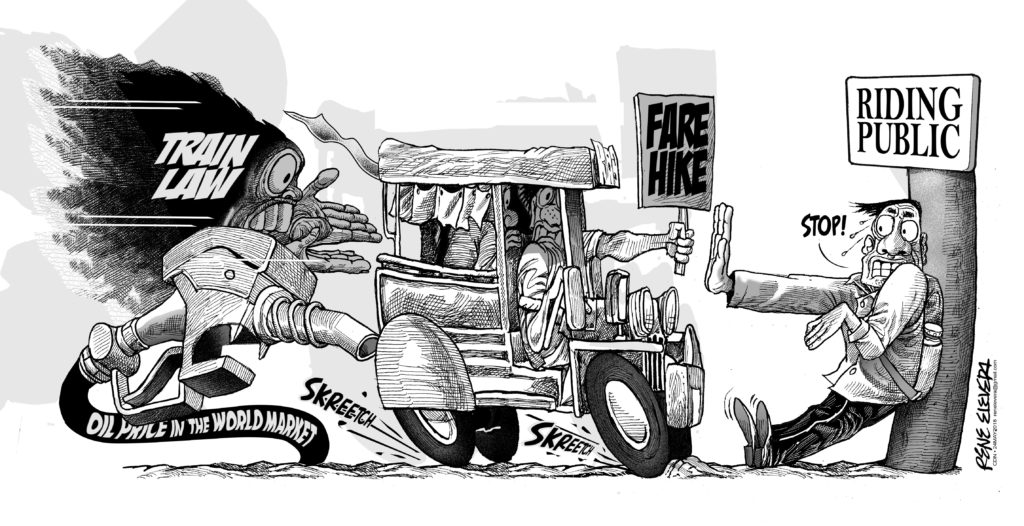A transport fare increase may be unavoidable, but it can be negotiated and that’s where the commuters should actively make their sentiments known amid plans by transport groups to raise fare rates in Metro Cebu by P10 to P12.
Two years back it would have been unthinkable and even unacceptable for the riding public to swallow a P10 to P12 fare rate increase given the erratic price fluctuations in the global oil market which can go up and down.
That was before this whole US-Iran feud and the uncertainty over Venezuela, a major oil producer, occurred along with the national government’s Train law that hiked prices on fuel products recently.
It’s the Train law that is the most visible and biggest pain in the pocket for the public, and taxes on fuel prices are expected to rise more in order to fund the government’s so-called “Build, Build, Build” initiative.
If it’s painful in Metro Cebu, it’s a lot more painful in Metro Manila where jeepney operators are looking to copy the “surge pricing” scheme that took effect for taxis and is being implemented by transport network service Grab for its members to compensate for their prolonged standby time during traffic congestion.
Under the surge price scheme for jeepneys petitioned by operators in Quezon City and Marikina, an additional P1 will be charged for the first four kilometers during peak hours which are from 5 a.m. to 8 a.m. and 5 p.m. to 8 p.m.
This is on top of the P10 fare rate for non-airconditioned jeepneys and P12 for airconditioned jeepneys as well as an additional P2 for every succeeding kilometer, up by 50 centavos from their current rate.
We can only imagine the public uproar if this surge price scheme will be copied by transport operators in Cebu especially with some of them acquiring new units that are compliant with the government’s transport modernization program.
In the midst of this, a petition by militant transport group Piston for government to bring down pump prices for fuel to P36 per liter to keep the P8 fare rate for commuters is a long shot, but something that should be seriously considered.
At this point, any alternative proposal to keep fuel prices low would be most welcome but it is doubtful if government has the political will or the inclination to do so unless it becomes a national emergency.
We also hope that plans by the opposition bloc in Congress to suspend the tax rates on fuel prices under the Train law would bear fruit if only to put the brakes on more fare increase petitions by transport groups and ease the burden on the riding public.
Disclaimer: The comments uploaded on this site do not necessarily represent or reflect the views of management and owner of Cebudailynews. We reserve the right to exclude comments that we deem to be inconsistent with our editorial standards.

